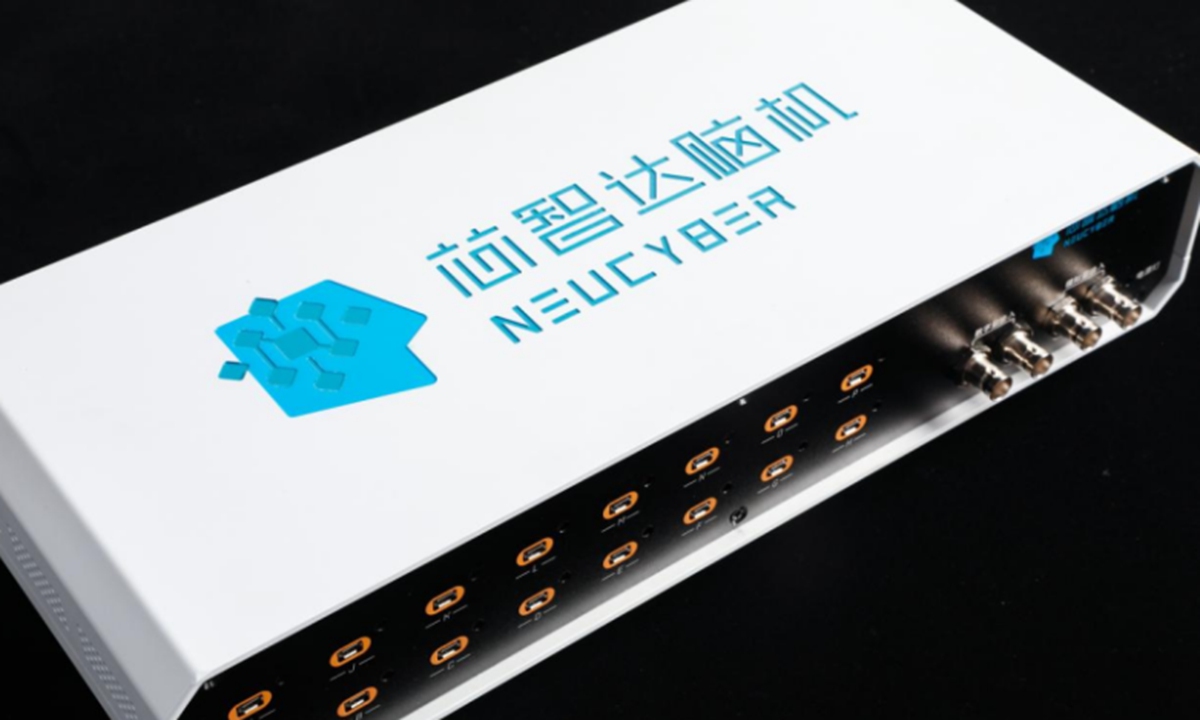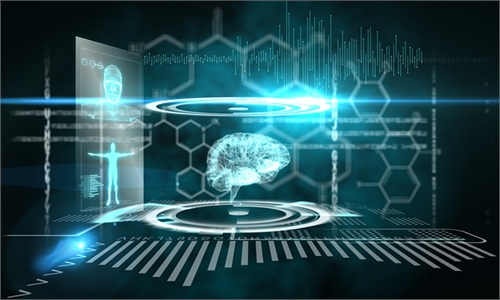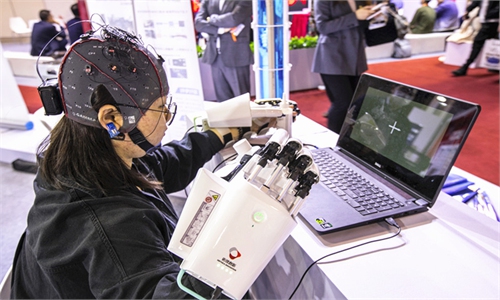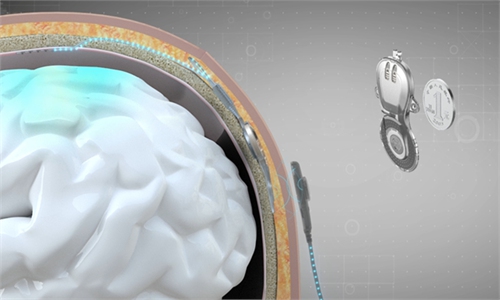
A core brain chip, called "Neucyber" independently developed by Chinese scientists, is unveiled at the Zhongguancun (ZGC) Forum on April 25, 2024.
Implanted in the brain is a small, soft film connected by delicate threads. Through this, a monkey with its hands tied up can control a robotic arm with "just its thoughts" and grasp a strawberry.This high performance of the brain-computer interfaces (BCI) technology revealed at the Zhongguancun (ZGC) Forum on Thursday is backed by a core brain chip, called "Neucyber," independently developed by Chinese scientists. Previously, Tesla CEO Elon Musk announced that his brain-chip startup Neuralink implanted a brain chip in a sick man.
The high performance is attributed to the three core components in Neucyber independently developed in China — high-throughput flexible microelectrodes, two high-speed neural signal acquisition devices and a generative neural decoding algorithm.
"The BCI involves capturing subtle changes in brain electrical signals, decoding brain intentions, and achieving 'thought' control of 'actions,' allowing the control of machines without physical contact," said Luo Minmin from the Chinese Institute for Brain Research.
The performance of BCI lies in the clarity of capturing brain electrical signals and the precision of their conversion, which rely on electrodes and algorithms, respectively.
The electrode acts as a "sensor," implanted in the brain to "read" brain electrical signals, with its performance determining the quantity and quality of captured brain signals.
Brain tissue is very soft and moves rhythmically with a person's heartbeat and breathing. In the past, the implantation of electrodes made of hard materials such as steel needles caused damage to brain tissue, triggering inflammatory reactions and leading to the encapsulation of the electrodes, which over time weakened the signals, says Li Yuan, Business Development Director of Beijing Xinzhida Neurotechnology, the company that developed this BCI brain chip system.
Implantable electrodes use flexible materials, greatly reducing damage to the brain and ensuring long-term stable signal acquisition. The flexible electrode has been stably implanted in the monkey's skull for nearly a year, and is still able to collect high-quality signals, according to Li.
The Neucyber is the first system in the world to realize the brain control interception of two-dimensional moving objects by rhesus monkeys through mind control. In the future, this could offer new hope for paralyzed people to be able to touch and grasp things in the physical world, Li noted.
Industry observers said the BCI technology is a systematic project that has higher requirement for stability and involving electrodes, chips, algorithms, software and materials. Key technologies are still needed to be further broken through.
Previously, China's prestigious Tsinghua University announced that Chinese scientists had made a breakthrough in the world's first patient BCI rehabilitation trial.
A team, led by principal Biomedical Engineering researcher Hong Bo from the School of Medicine with Tsinghua University, designed and developed the wireless minimally invasive implanted BCI technology device NEO (Neural Electronic Opportunity). The NEO was successfully implanted into a patient's brain for the BCI-assisted treatment trial at the Xuanwu Hospital in Beijing, on October 24, 2023.



